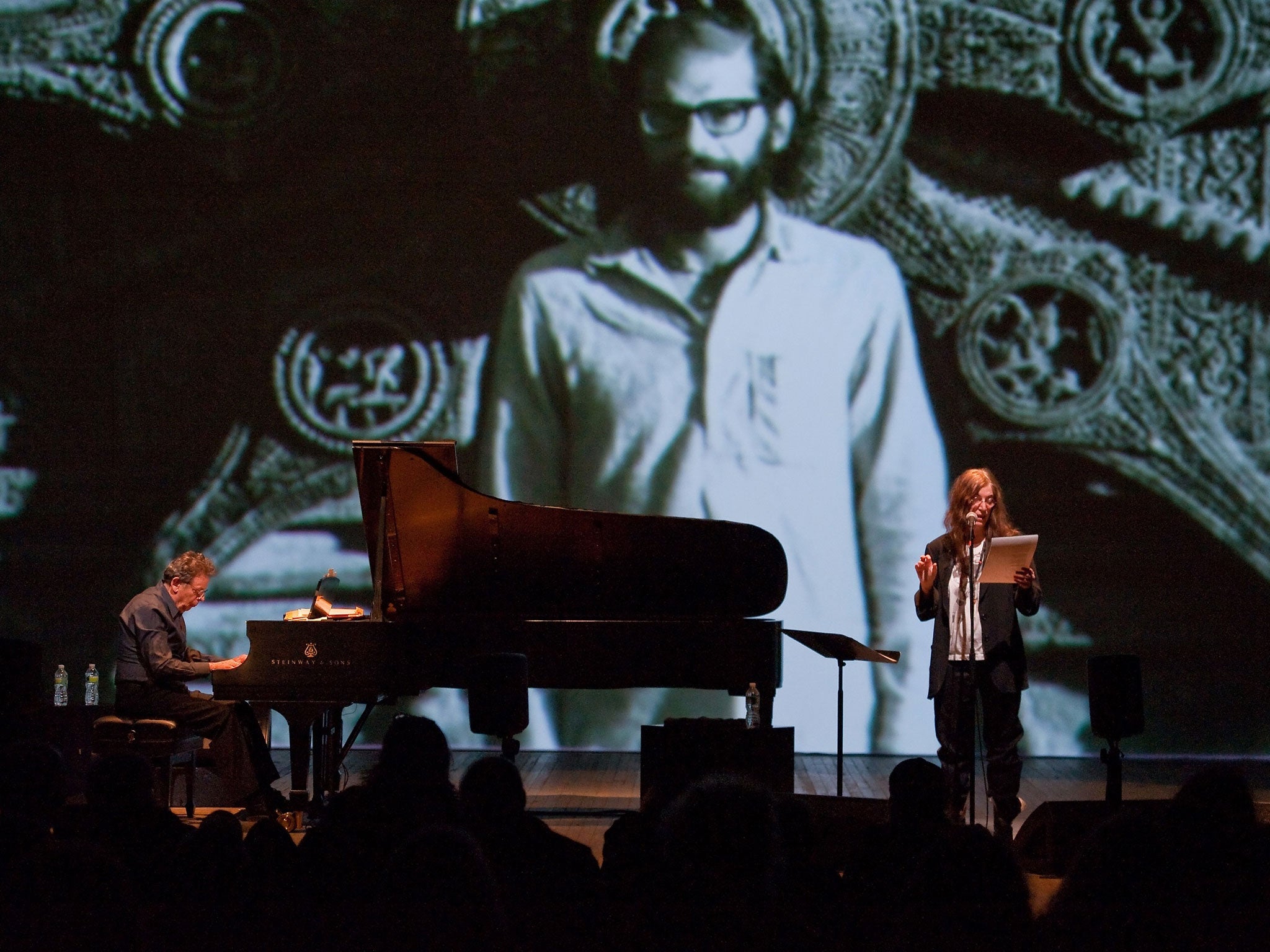Edinburgh 2013: The Poet Speaks - Patti Smith and Philip Glass pay homage to Allen Ginsberg

“Allen, despite Allen, contained multitudes,” said the New York punk priestess Patti Smith of her late friend, the beat poet Allen Ginsberg. Cut to five words, it was possibly the most profound tribute Ginsberg received during this 90-minute joint homage from Smith and his friend and collaborator Philip Glass. Even when the music and poetry weren’t necessarily about him, Ginsberg’s presence hung in the room.
Partly this was because a slow-rolling feed of sepia-tinted old photos, Ginsberg inevitably wild-eyed and masked behind an electrified beard, was projected in the background; mostly it was thanks to the rich sense of transference between these three marquee names and their art, much of it responsible for a large swathe of late 20 century North America’s counter-cultural consciousness.
The initial set-up was simple – Glass at the piano and Smith at her microphone, reading verse. Early on came Ginsberg’s poem “Wichita Vortex Sutra”, re-recorded alongside Glass in 1993 for their Hydrogen Jukebox record, and already a live favourite of Smith’s. Her intonation was gloriously understated, a low apocalyptic growl, softly escalating in pace and intensity as the end-of-days war being played out in the skies above Kansas moved to its conclusion. Her own poem “The Blue Thangka” brought similar drama to the death of one elderly, spiritual gentleman, watched over by his faithful dog, as Glass dipped into the gentler reaches of his own “Metamorphoses” in the background.
The pair split for their own segments midway through, Smith being joined by her long-serving guitarist Tony Shanahan for raw acoustic versions of “Dancing Barefoot” and “Pissing in a River”, and a hymnal take on John Lennon’s “Beautiful Boy (Darling Boy)”, interspersed with special location-specific readings from her favourite poet Robert Louis Stevenson. They included her beloved-as-a-child “The Land of Nod” and the crystalline descriptive purity of “Looking Glass River”.
The contrast with Glass’ triptych, including two of his “Etudes”, was sharp, with the lack of a lyrical element for the only time of the evening playing on different spheres of the imagination. Yet although this pair are powerful on their own, their combined sensibilities and those of Ginsberg repeatedly produced something special, including the mantra-like encapsulation of bereavement “On Cremation of Chogyam Trungpa, Vidyadhara” and the plainly transcendent “holy holy holy” beat of “Footnote to Howl”.
Only a communal encore of Smith’s rabble-rousing “People Have the Power” felt in any way superfluous, but it was hardly unwelcome, particularly as we were treated to the unusual sight of Glass gamely trying to play along barroom style with the clapping crowd’s rhythm.
Join our commenting forum
Join thought-provoking conversations, follow other Independent readers and see their replies
0Comments